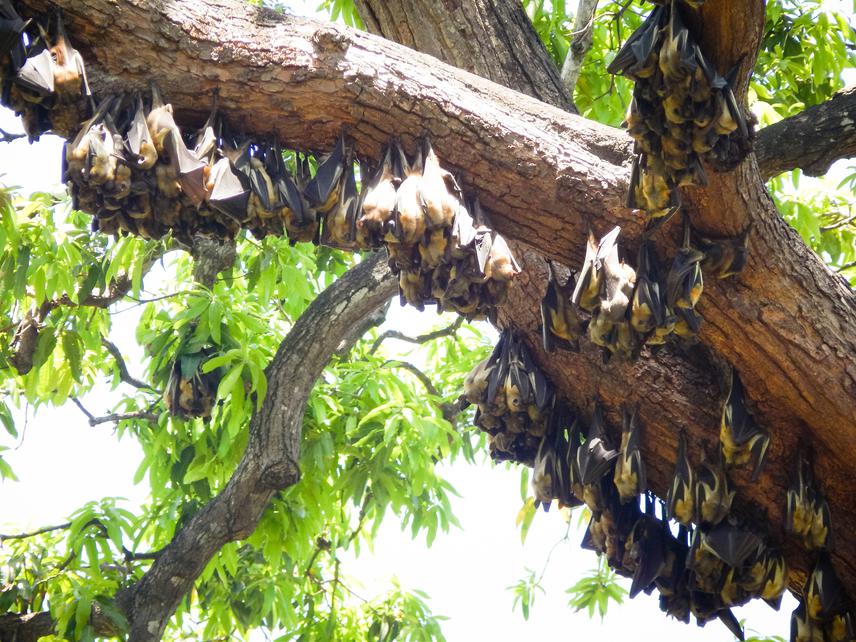Paul Webala
Other projects
19 Jul 2011
The Population Ecology, Diet and Movement of Straw-Coloured Fruit Bats, Eidoln helvum (Megachiroptera: Pteropodidae) in Western Kenya I
17 Nov 2014
Monitoring and Conservation of Straw-Coloured Fruit Bats, Eidolon helvum (Megachiroptera: Pteropodidae) in Kenya
The project goal is to maintain a viable population of straw-coloured fruit bats (Eidolon helvum) in Kenya through a robust educational and community outreach programme aimed at changing negative community perceptions about bats.

Straw-coloured fruit bats are endangered in Kenya by deforestation, roost-tree clearance and negative perceptions. We will undertake continued population monitoring and searches for more roosting camps. Additionally, year-round seed dispersal experiments and roost-site selection investigations will be conducted. Nature Kenya (http://www.naturekenya.org/) will help implement resulting site action plans as well as hosting the database. The site management plans and other data will be distributed to all stakeholders. These data and other information on Eidolon helvum will also be available online via https://sites.google.com/site/eidolonafrica/.
We will establish wildlife clubs and intensify environmental talks to improve understanding about bats and dispel myths and traditional beliefs among local people. In addition to the usual robust educational and community outreach programmes, a livelihood analysis will be carried out among local communities through which income generating activities (e.g. agroforestry, poultry farming, bee keeping, dairy farming, handcrafts) will be identified and initiated among the farmers and other members of the community to enable them buy into the conservation of bats. Once they perceive the economic benefits, they will be motivated to tolerate the bats hence ensuring their survival. We will organise awareness events/activities like tree planting, cultural days and football match competitions, which are common in western Kenya, through which the bat conservation message can be delivered. During such locally-organised events, T-shirts, posters and other informative materials will be given out to participants.
Through this, we hope to spread the "gospel" of bat conservation deeper and wider in the community! We will approach popular local musicians to compose simple songs in local dialects with messages on socially/ecologically important trees whose seeds are dispersed by bats and songs that praise bats for the ecosystem services they provide! Finally, we will develop bat-based ecotourism as leverage for bats protection and their roosting camps. A detailed market survey targeting local people and foreign tourists will be undertaken to assess the tourist option of using bats and their large roosting camps as main attractions. A stakeholders’ workshop will be held to bring together all stakeholders including Site Support Groups, Kenya Wildlife Service, Nature Kenya (NK), Kenya Forest Service (KFS), National Museums of Kenya (NMK) and The Kenya Association of Tour Operators - KATO) to consider ways of linking bat tourism to the western Kenya tourism circuit.